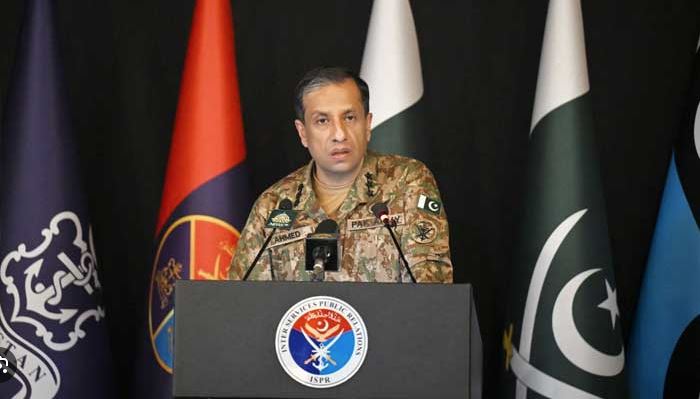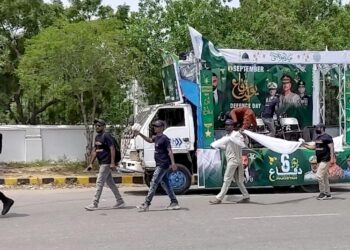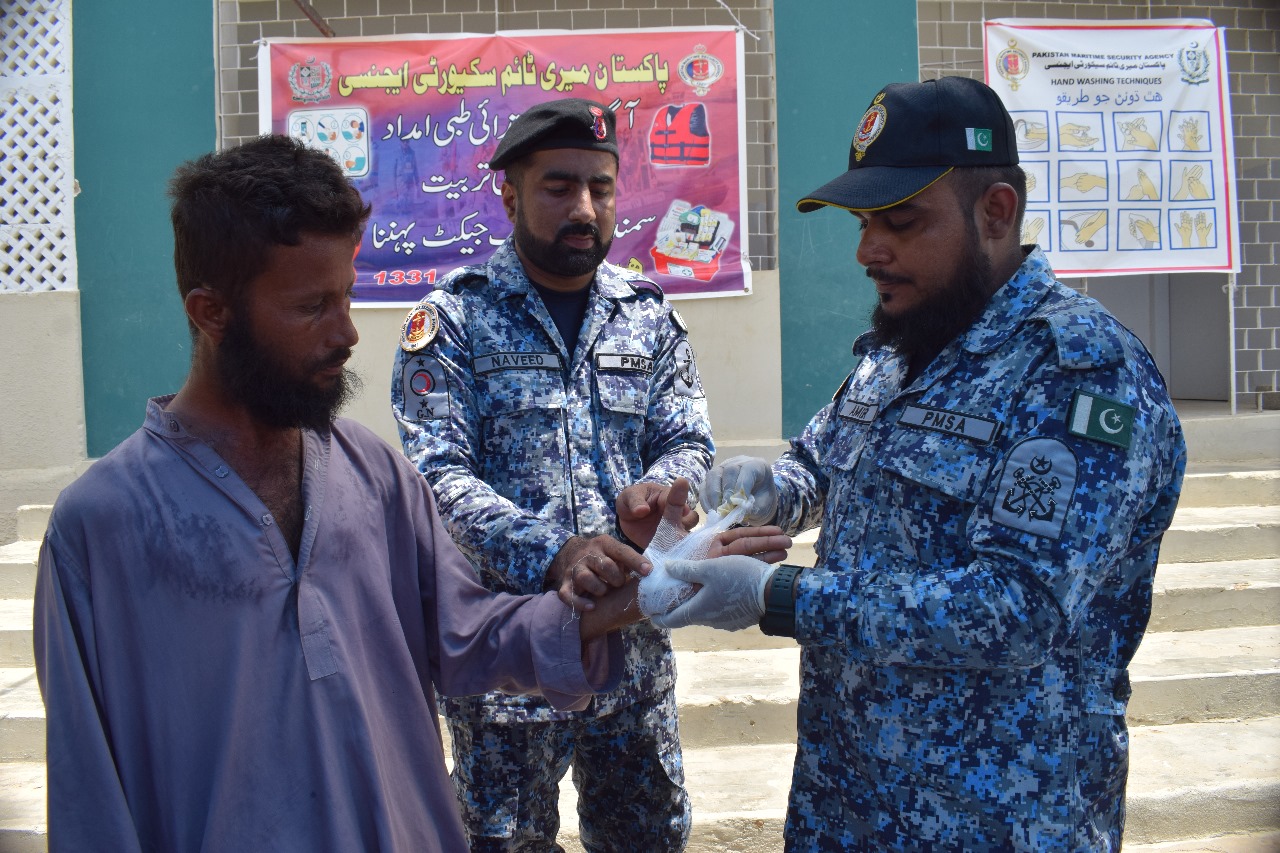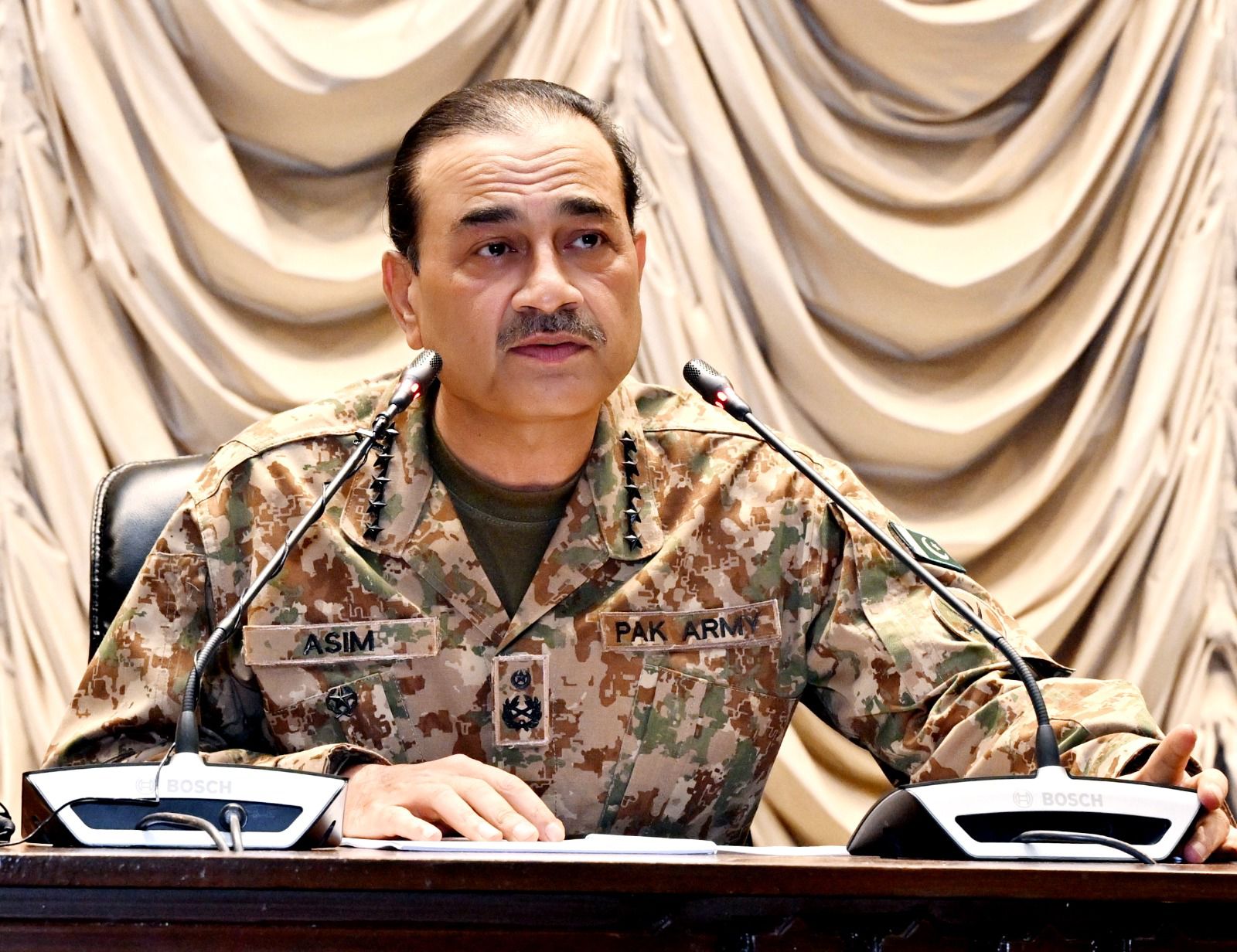India had not provided a “shred of evidence”
for its claims but engaging in cross-border
terrorism, targeting Pakistan’s military and civilians
Defense Correspondent

Islamabad: Inter-Services Public Relations (ISPR) Director General, Lt Gen Ahmed Sharif Chaudhry, on Tuesday, refuted India’s “baseless allegations” concerning Pakistan’s involvement in the Pahalgam attack. He emphasized that India had not provided a “shred of evidence” for its claims. Furthermore, Chaudhry accused India of engaging in cross-border terrorism, targeting Pakistan’s military and civilians.
Pahalgam Attack: India’s Baseless Allegations and Pakistan’s Strong Denial
Relations between Pakistan and India have deteriorated following the April 22 attack in Indian-occupied Kashmir’s Pahalgam, which killed 26 people, mostly tourists. The attack was one of the deadliest armed assaults on civilians in the disputed region since 2000. Despite initial claims of responsibility, Kashmir Resistance (The Resistance Front) unequivocally denied involvement in the attack. India, without providing evidence, suggested Pakistan’s backing of the attackers—a claim strongly denied by Islamabad.
Prime Minister Shehbaz Sharif has called for a neutral investigation into the incident, while Lt Gen Chaudhry highlighted that India’s accusations remained unsubstantiated after seven days.
India’s Cross-Border Terrorism and Evidence Against Pakistani Terrorist Cells
Lt Gen Chaudhry stated that Pakistan has gathered concrete evidence showing that India operates a terror network inside Pakistan. He revealed that explosives, IEDs (improvised explosive devices), and other materials are being supplied to terrorists targeting both military and civilian targets.
Evidence of Indian State-Sponsored Terrorism
Chaudhry shared information about a recent arrest on April 25, where an Indian-trained Pakistani terrorist was apprehended near Jhelum, revealing a connection to a broader terror network. The seized materials included an IED, two mobile phones, and Rs 70,000, along with an Indian-origin drone and Rs 1 million in cash from the suspect’s residence.
Forensic analysis of the retrieved materials showed irrefutable evidence of Indian state-sponsored terrorism, which could be verified by any credible independent agency.
Indian Army’s Direct Involvement in Terrorism
The DG ISPR detailed the involvement of Indian military personnel in the terror network, naming four Indian army officers, including Major Sandeep Verma, Subedar Sukvinder, and Havildar Amit, who were linked to Pakistani terrorists. Chaudhry presented an audio clip of Major Sandeep discussing terrorist financing from Balochistan to Lahore, further corroborating India’s role in terrorism.
IED Attacks and Drone Operations in Pakistan
Chaudhry noted that the Indian-trained terrorist had been involved in four IED attacks, with materials being transported via drones. He clarified that it was not India’s intelligence agency RAW, but the Indian army itself responsible for these acts of terrorism in Pakistan.
India’s Escalating Terror Activities
Chaudhry warned that, post-Pahalgam, India had intensified its terrorism efforts through its assets in Balochistan and other independent terrorist cells. Credible intelligence showed that terrorists operating in Balochistan had been tasked with ramping up activities. This escalation was reflected in recent security operations in Khyber Pakhtunkhwa’s North Waziristan district, where 71 terrorists were neutralized.
Pakistani Forces Respond to Indian Drone and Cross-Border Tensions
In a related development, Pakistan Army shot down an Indian quadcopter drone near the Line of Control (LoC) in Azad Jammu and Kashmir. Tensions along the LoC have intensified with Indian and Pakistani forces engaging in fire exchanges for the fifth consecutive night.
Interior Minister’s Statement on Border Security and Indian Motives
Speaking on border security, Interior Minister Mohsin Naqvi reassured the public that the situation was being closely monitored. He stated that Pakistan would respond appropriately to any incursions. He also suggested that India’s rising tensions might be linked to its upcoming elections, citing the Indian government’s “multiple motives” behind escalating hostilities.
Jaffer Express Attack: Evidence of External Sponsorship
Pakistan’s Mission to the United Nations also revealed credible evidence of external sponsorship behind the Jaffer Express attack, carried out by Balochistan Liberation Army (BLA) militants. On March 11, BLA terrorists hijacked the Jaffer Express train, taking 440 passengers hostage. The security forces neutralized 33 terrorists, with no hostages harmed in the operation.
Conclusion: Pakistan’s Strong Stance Against India’s Terror Allegations
The ISPR DG’s statement highlights Pakistan’s firm rejection of India’s baseless allegations and presents solid evidence of cross-border terrorism orchestrated by Indian state actors. With escalating tensions along the LoC and India’s involvement in terrorism in Pakistan, the need for a neutral probe into these incidents is more pressing than ever.






















